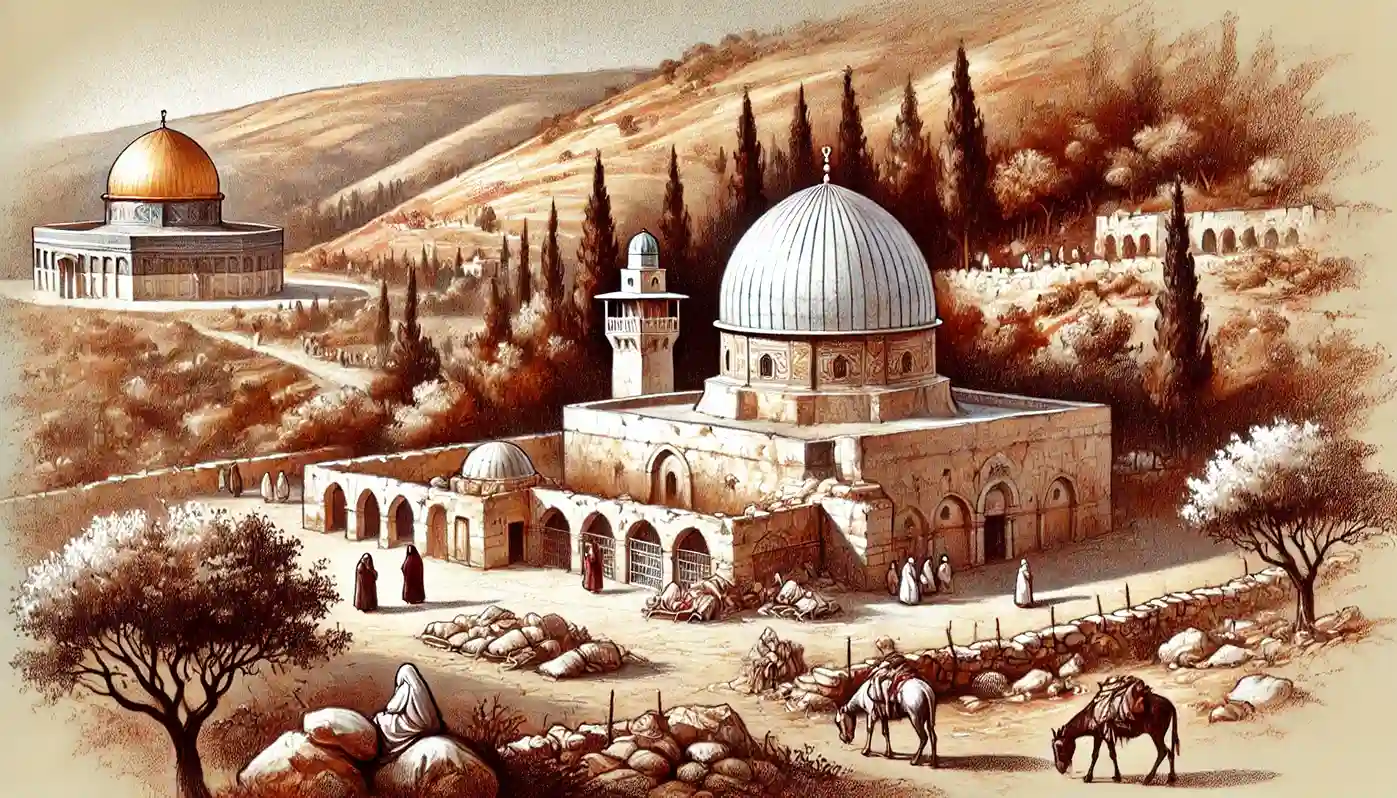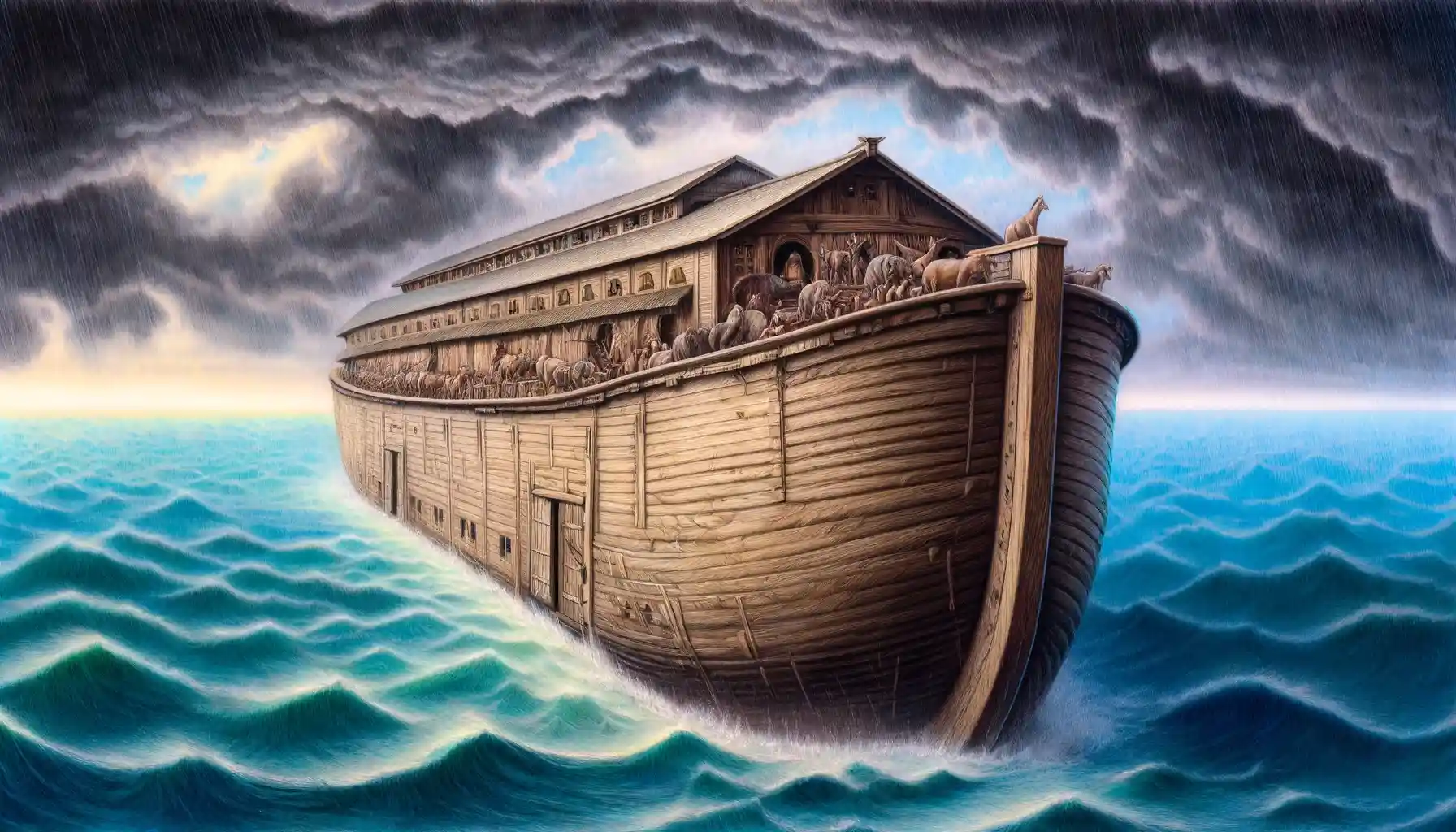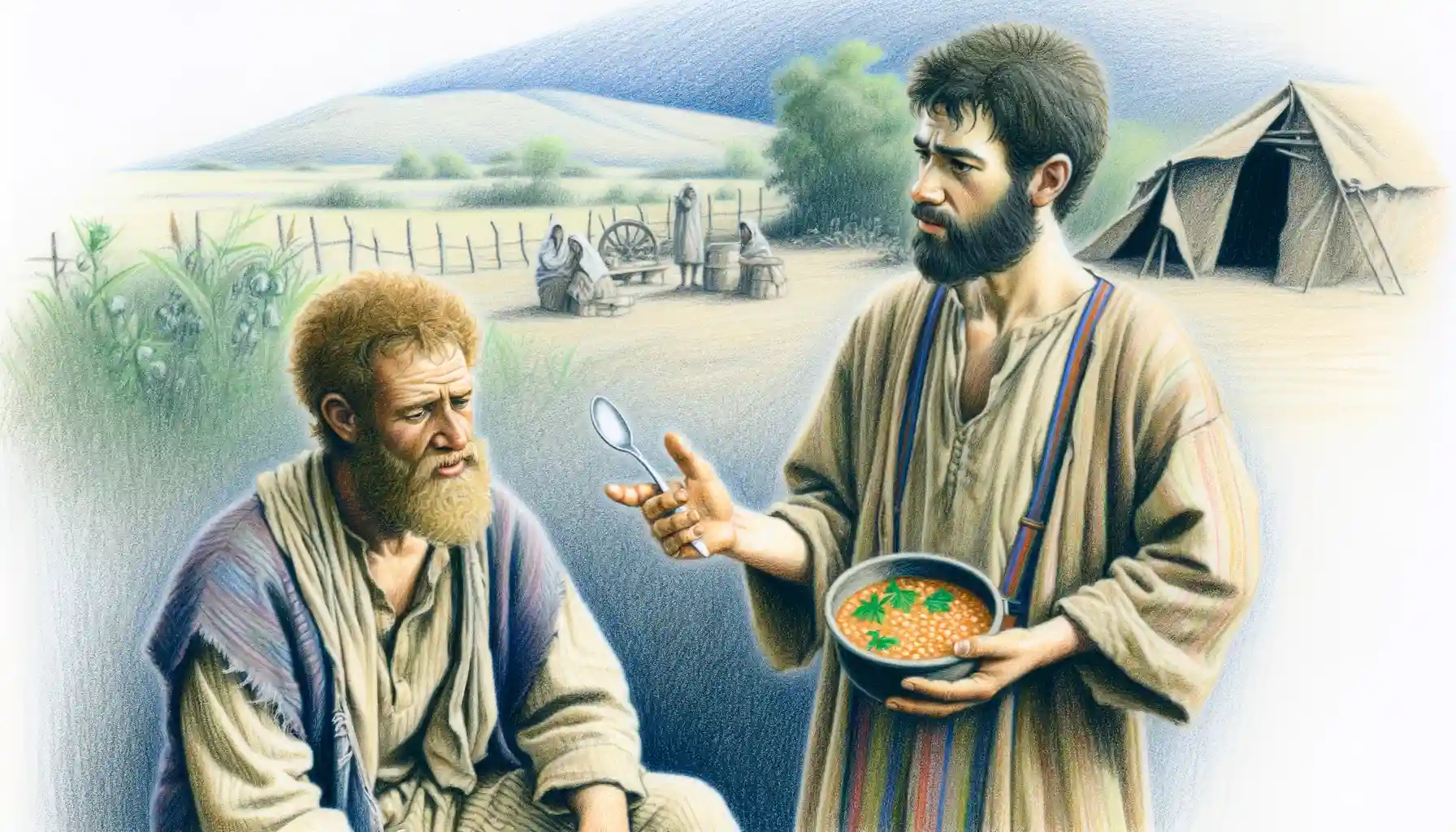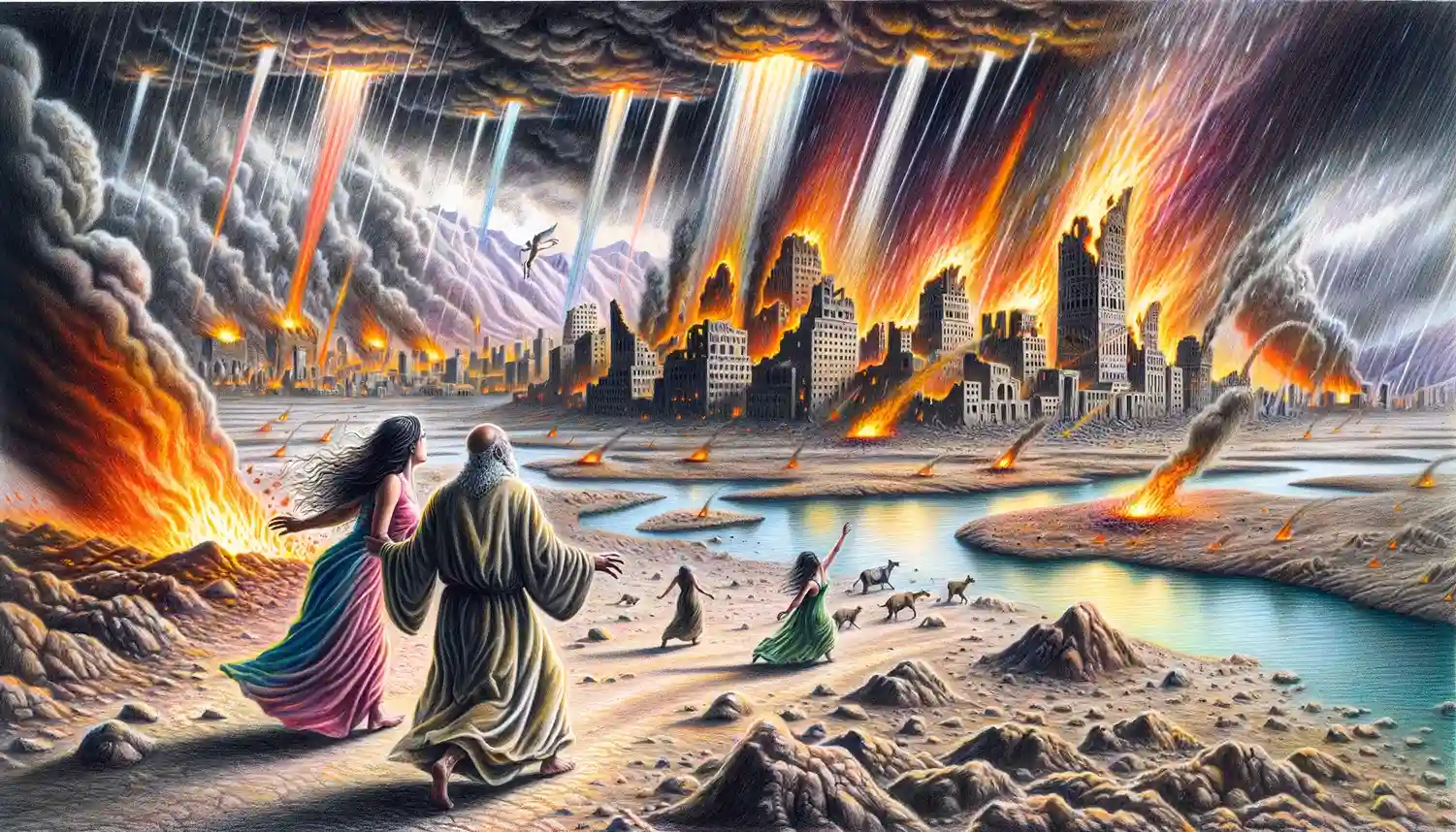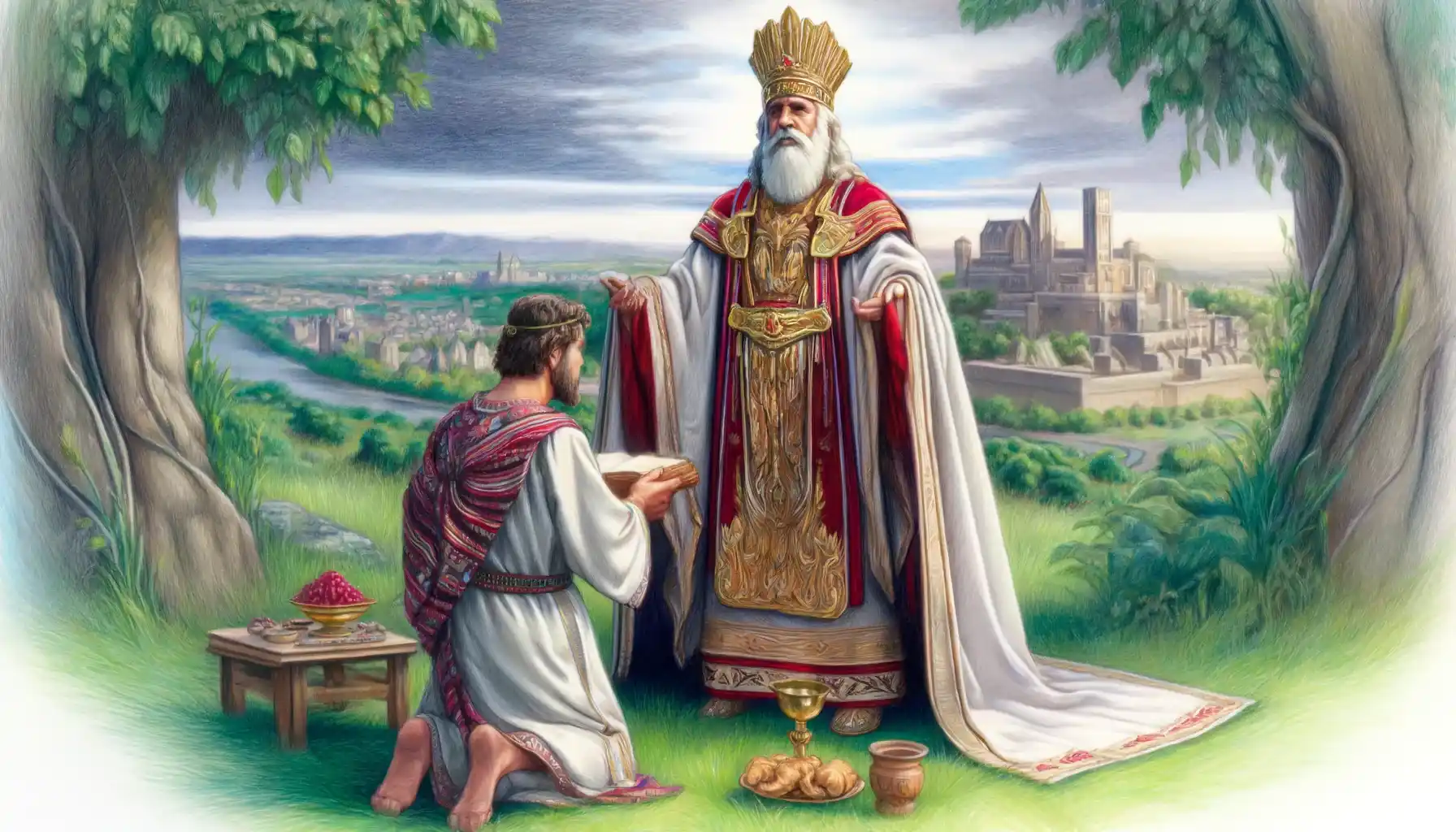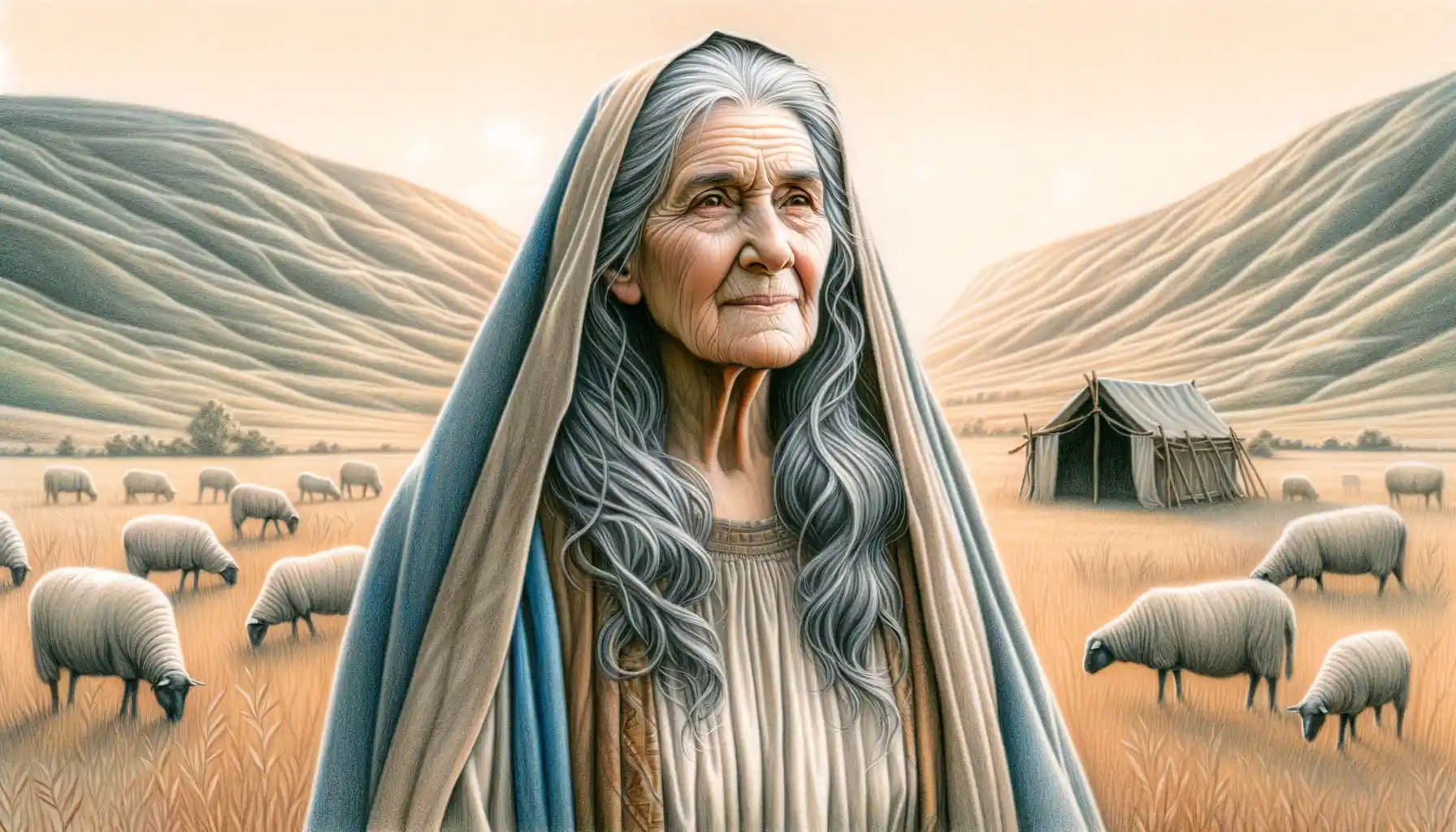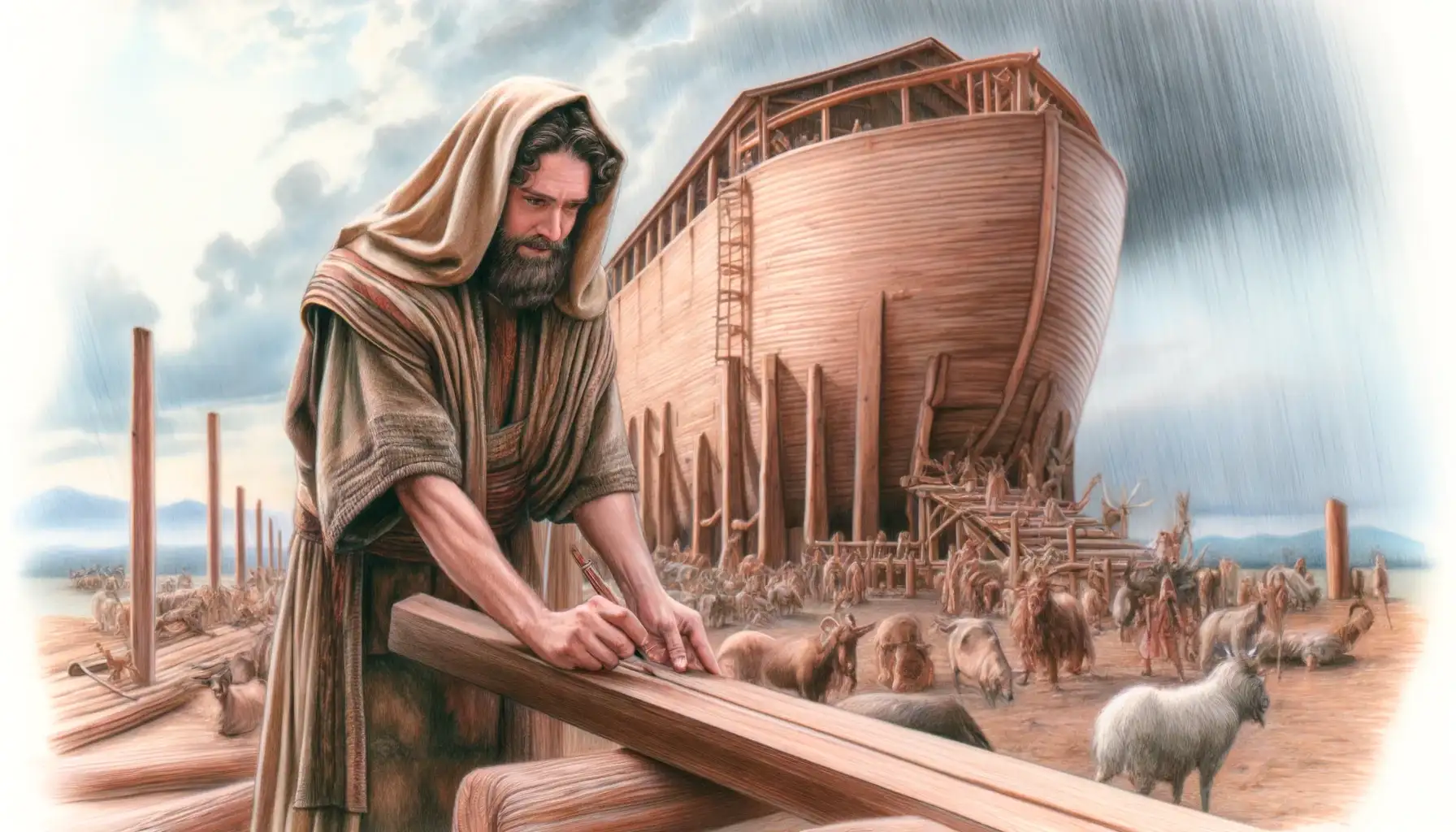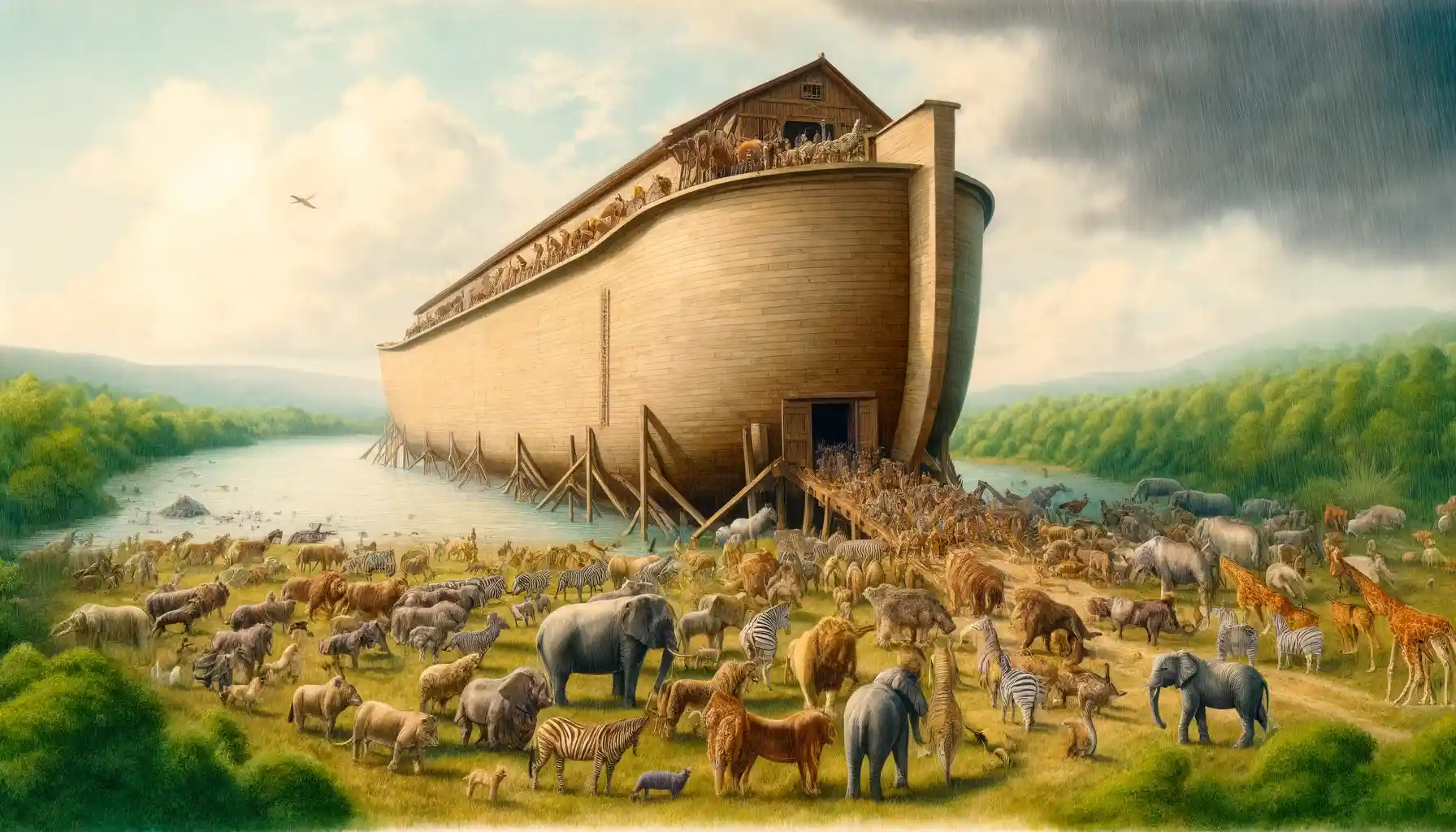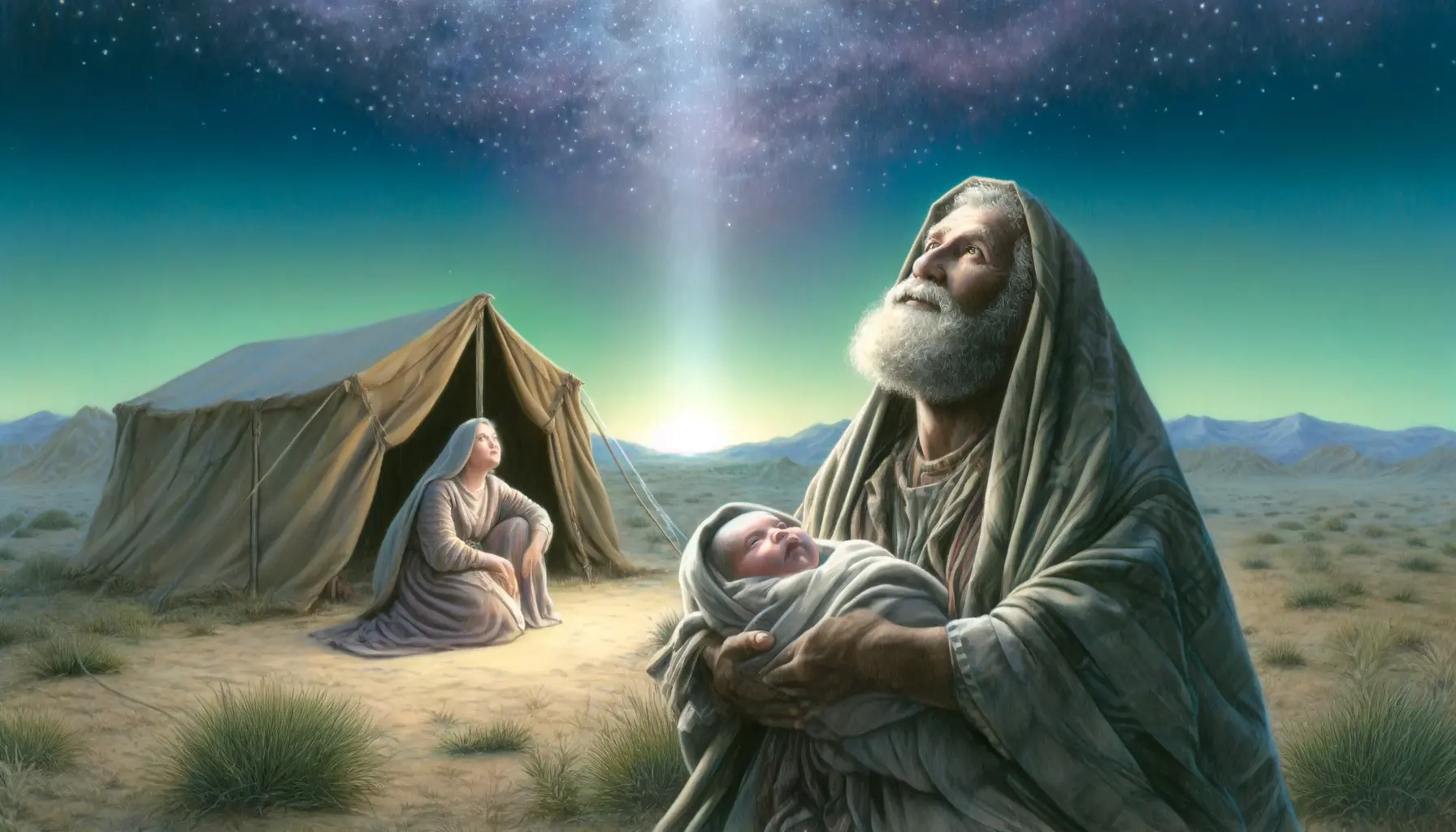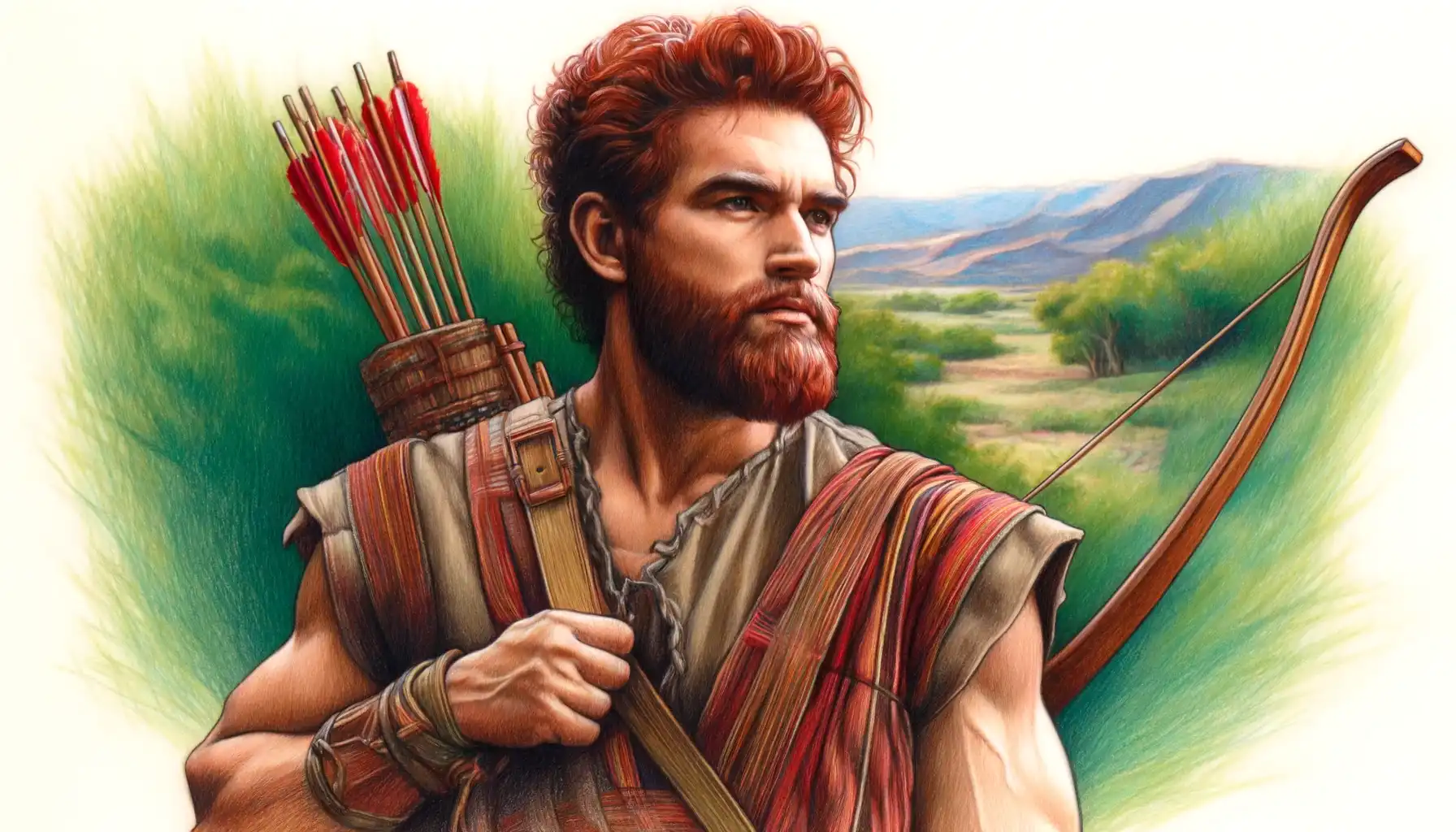Rachel’s Tomb, located near Bethlehem, is a revered biblical site traditionally believed to be the final resting place of Rachel, Jacob’s wife, and holds profound historical, religious, and cultural significance for Jews, Christians, and Muslims.
Noah’s Ark, a massive vessel made of gopher wood and sealed with pitch, was built to specific dimensions to house Noah’s family and pairs of all animal species during the Great Flood, symbolizing God’s salvation and judgment.
Esau sold his birthright to his younger brother Jacob for a meal, a decision that demonstrated his disregard for his heritage and had lasting consequences on the lineage and destiny of the Israelites.
Genesis 19:24-25 describes the dramatic and divine destruction of the cities of Sodom and Gomorrah by God, who rained down sulfur and fire upon them due to their wickedness.
Melchizedek, the king of Salem and priest of the Most High God, appears briefly in Genesis 14:18-20, blessing Abraham and sharing bread and wine, prefiguring Christian communion rituals and serving as a type of Christ in his dual role as king and priest.
Sarah, originally named Sarai, was the wife of Abraham and mother of Isaac, whose birth at her advanced age of 90 fulfilled God’s promise and demonstrated her unwavering faith in His plans.
Noah, a righteous man chosen by God, built an ark to survive the Great Flood, preserving his family and pairs of every kind of animal, and established a covenant with God promising never to destroy the earth with a flood again.
In the biblical narrative of Noah’s Ark and the Flood, detailed in Genesis chapters 6 through 9, God decides to cleanse the earth of its pervasive wickedness by sending a catastrophic flood, sparing only Noah, a righteous man, his family, and representative animal species who survive in a divinely instructed ark, leading to a renewed covenant symbolized by a rainbow.
Isaac, whose birth to the elderly Sarah and Abraham was foretold by God, represents a miraculous fulfillment of divine promise and a key figure in the continuation of the Abrahamic covenant.
Esau’s life story is a complex narrative of impulse, loss, and eventual reconciliation. It highlights themes of family, conflict, and redemption, providing deep insights into the consequences of choices and the power of forgiveness.

